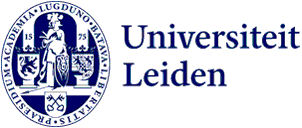
Need inspiration for a Kiem application? ‘Go big!’
Are you thinking of applying for a Kiem grant but still tinkering with your idea for an interdisciplinary project? Let your Leiden colleagues inspire you! Dario Fazzi successfully applied for a Kiem grant with his workshop ‘Understanding the threat of the Anthropocene’.

Hi Dario, could you tell us a bit more about your project?
‘We are witnessing an increase in the production of systemic risk in the world. There are so many threats - climate change, war, political instability, pandemics, economic volatility, toxic contamination, energy transitions. All of this is creating a multidimensional crisis, which is increasing the level of existential risk in our society. Now, there is a broader academic conversation going on, cutting across disciplines and discussing ways in which societies should react to worsening of existential risk in our time and age. This conversation is taking place at many other universities all over the world. Cambridge, for instance, established a center for the study of existential risk a few years ago, and there are similar institutions in Switzerland, Germany, and the United States. I wanted to bring this conversation to Leiden. So, with the help of a few colleagues both in Leiden and at the Roosevelt Institute for American Studies in Middelburg, I’ve organized a one-day workshop inviting international experts and fourteen scholars from four different faculties in Leiden to conversate about the changing role of risk in contemporary societies. The discussion will take place over the course of a few sessions that will help us to explore the history, culture, politics, and science of risk. The questions that we are going to address revolve around the ways we assess, manage, interpret, discuss, and perceive existential and systemic risk over the times and spaces of the Anthropocene. We will also talk of how risk should be communicated, codified, and institutionalized, and how it should be transferred to new generations. The idea is to conclude the day with an open discussion on the possible output of this conversation.’
What was the main challenge organizing the workshop?
‘Thinking of the best ways to organize the day, precisely because the topic is so broad. We ended up with a format having three working sessions each one led by two discussion leaders. They will spark and guide the conversation. In a series of meetings over this year, we have set up together a series of talking points and open questions that we pre-circulated in the hope to stimulate forward-thinking and genuine exchange of opinions and viewpoints. A student assistant will help us taking notes and I have the feeling that each session will provide enough material for multiple follow-ups.’
Can you offer any advice to applicants for the next round of Kiem grants?
‘Go big. This is a project that really allows you to go to the roots of problems of your own research. And if you do it, then you may realize that what is really concerning your research perhaps goes beyond your own disciplinary expertise. Finding solutions sometimes requires contributions from colleagues from other areas and fields. Kiem grants offer the opportunity for such an interdisciplinary collaboration. So, I'd say, be specific and sectorial as much as you want when you apply for other kind of grants like ERC or NWO. But for this kind of grant, I think it would be a good idea to challenge yourself and our own collective thinking.’
You can apply for an interdisciplinary Kiem grant untill Friday June 21 2024. Please see here for more information!
Banner image: Lian Lim / Unsplash
